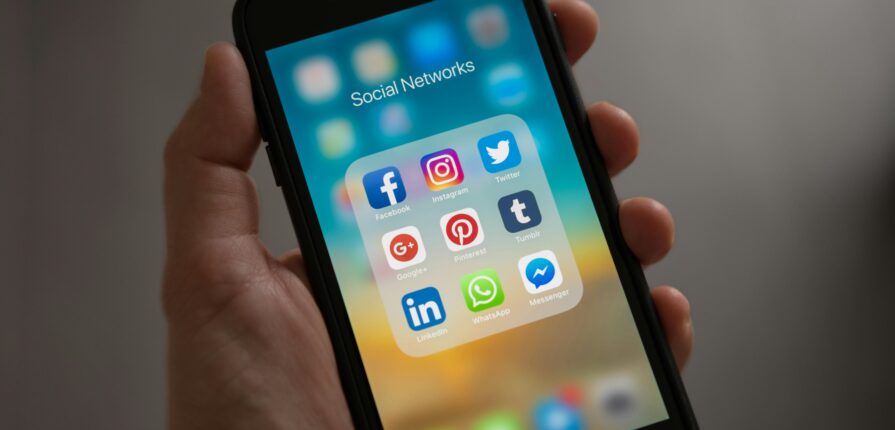The music industry is an unrecognizable place compared to just 10 years ago.
—
June 30, 2017
For an artist like Ne-Yo, who first tasted success in the early noughties, the transition has been hard to witness.
I recently heard him speak at Web Summit alongside fellow music artist Tinie Tempah, Hans-Holger Albrecht, the CEO of Deezer, and Eric Wahlforss, the CTO of SoundCloud.
While Ne-Yo, in particular, came across as slightly grumpy about the ‘good old days’ of the music biz, some interesting points were raised about how artists and consumers alike can benefit from the changes.
Here are a few key takeaways from the discussion.
Technology leads to a level playing field
In contrast to Ne-Yo’s focus on the adverse impact of music streaming services (about the lack of royalties for artists), the rather articulate Tinie Tempah spoke about how it helped him find success in the first place.
When he was first starting out, digital platforms like MySpace and even MSN allowed Tinie to build and cultivate an audience outside of the realms of record labels and industry politics.
Likewise, it also allowed him to connect and engage with fans on a one-to-one level.
In fact, Tinie explained how he was even willing to give his music away for free to reward the most loyal fans and reach an even bigger audience.
Of course, he accepts that the streaming era makes it difficult for artists to be properly compensated past a certain point.
But in a way, it has made the industry bigger and more inclusive, giving new artists the opportunity to get their music heard when they would have had a little chance before.
Data is the key to a great experience
On the subject of new music platforms like Deezer, SoundCloud and Spotify – Tinie Tempah also emphasized how tapping into data can also help artists further their creativity.
For him, understanding how a fan or listener feels about a new piece of music can prove far more valuable than money.
Hans-Holger Albrecht also spoke about how platforms like Deezer can help to provide this data, as well as encourage consumers to pay for online music services (thereby contributing to counteract the issue of a loss of revenue).
More specifically, Hans referenced Flow – a new feature on Deezer that interprets user data.
Mainly, it takes into consideration an existing music library and search behavior and creates a bespoke and personalized radio station on the listener’s behalf.
Like Spotify’s Discover Weekly, it is becoming one of the most attractive aspects of Deezer, and a reason many consumers are now willing to pay out for subscription services rather than use the free option.
Now, we are beginning to see how the ‘experience’ of discovering new music is becoming just as important as accessing the artists that audiences already love.
Social media is a double-edged sword
As the discussion moved away from compensatory issues into general feelings about the modern music industry, the ‘always-on’ nature of social media was brought into question.
Some argued that while having a visible presence on Twitter and Facebook gives artists a direct link to fans – again allowing them to gauge feedback and response – it can also take away from the creativity of being an artist.
Tinie Tempah described it as being caught between a rock and a hard place.
On the one hand, he wants to aspire to be as successful as Jay-Z and Adele – meaning an air of mystery is expected above and beyond an online presence – but on the other hand he recognizes that, as an ‘artist of the internet,’ this would appear hypocritical.
Again, this is where hierarchy within the music industry also comes into play.
While Ne-Yo and Tinie have control over their social media accounts, record labels and management promote the importance of daily activity.
As a result, the decision to employ people to take care of this means choosing between a sense of authenticity or maintaining an active presence.
The power of new platforms
Do music algorithms create a personalized stream or put listeners into segregated boxes?
This was the final question raised in the discussion – and one that was hotly debated.
While the music artists on the panel leaned towards the latter, Eric Wahlforss made an interesting point about the changing needs and expectations of music consumers.
Despite most brands talking about millennials, Eric suggested that SoundCloud is now placing an increased focus on the generation that comes after.
With 15-20-year-olds growing up with iPhones and Android rather than iPods and PCs, predictive technology is now the norm. This means that a feed tailored to unique musical tastes is an expectation rather than a perk.
At the same time, the fact that people now consume music passively – letting it find them rather than actively searching for it – takes away the linear aspect of listening to music.
Never mind even playing an album from start to finish – it wouldn’t be unusual for a 16-year-old to switch from Roberta Flack to The 1975 in the same playlist.
Finally, with platforms continuously drawing on data and machine learning to improve algorithms, this personalized experience will become even bigger and better as time goes on.
Armed with this, the hope is that artists, labels, and digital brands will find new ways for everyone to benefit.
—
This article is a re-post, with small modifications, of “The Impact of Technology and Social Media on the Music Industry” an article published on econsultancy.com by Nikki Gilliland.
Click here to visit the original content.


